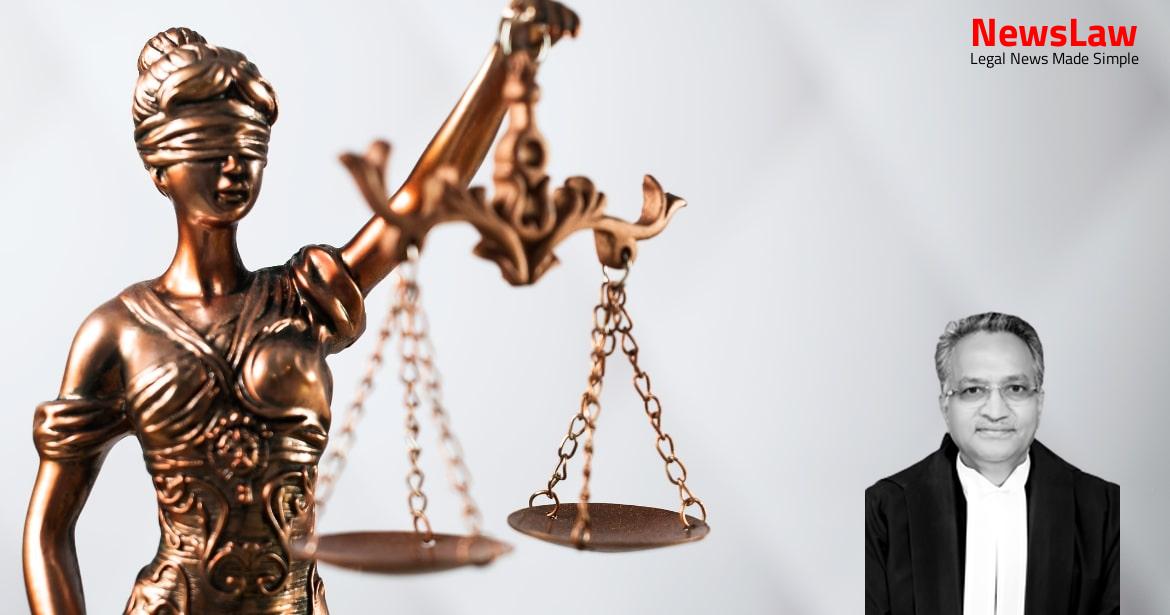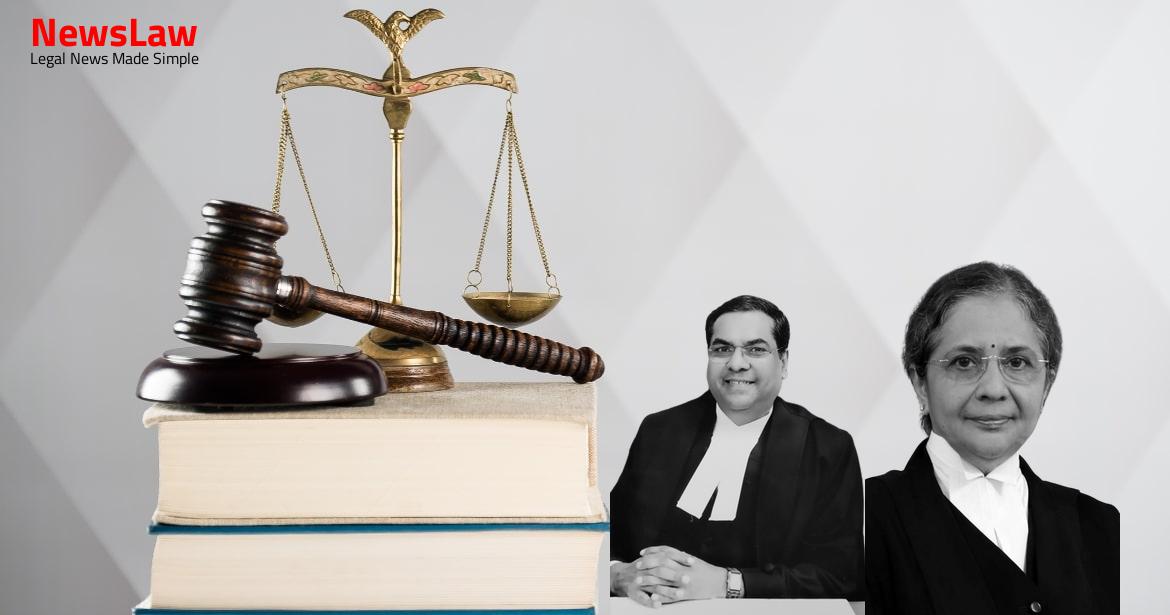Explore the intricate legal analysis involved in the quashing of criminal proceedings by the court, emphasizing the importance of thorough investigation, evidence collection, and charge-sheet filing. The blog sheds light on the court’s role in distinguishing between civil and criminal matters, and the significance of trial proceedings in resolving contentious issues. Stay tuned to unravel the intricate details of legal proceedings!
Facts
- Investigating officer submitted chargesheet after collecting credible evidence against the accused.
- Magistrate took cognizance after reviewing the chargesheet and issued injunction in favor of Mamta Gupta.
- Complainant was abused, threatened, and forced to sign a blank paper by the accused.
- Medical report was produced by the complainant.
- Chargesheet filed against private respondents for various offenses under IPC sections.
- Another FIR registered against them for different offenses.
- Dispute alleged to be of civil nature with criminal proceedings seen as pressure tactics.
- Private respondents claim civil agreement with Munni Devi for plot purchase, construction, and possession.
- Opposition to 482 petition by the original complainant based on conflicting claims.
- Detailed scenario of events leading to the FIR and subsequent legal actions provided.
- High Court quashed the criminal proceedings based on certain grounds.
- The original complainant, Kaptan Singh, was considered an outsider and stranger to the deal.
- No power of attorney in favor of Kaptan Singh was filed with the counter affidavit.
- The dispute was deemed of a civil nature with pending civil suits between the parties.
- Veracity and genuineness of notarized affidavit to be considered in civil proceedings.
- Assertion that no entrustment of property occurred, thus no case under Section 406 of IPC.
Also Read: Electoral Malpractices in Mayor Election
Arguments
- The appellant is aggrieved by the High Court’s decision to quash criminal proceedings under Section 482 Cr.P.C.
- The appellant argues that the High Court erred in not considering the thorough investigation, evidence collection, witness statements, and charge-sheet filing before quashing the proceedings.
- The appellant’s counsel contends that the High Court should not have delved into the merits of the allegations at the quashing stage but should have left them for trial.
- The High Court’s observation that there was no case under Section 406 IPC and lack of corroborating evidence for other allegations are challenged by the appellant.
- The appellant argues that contentious issues should be resolved during trial, not at the quashing stage under Section 482 Cr.P.C.
- The respondent’s counsel argues that the High Court did not err in quashing the criminal proceedings as the case falls within the exceptions outlined in the State of Haryana vs Bhajan Lal case.
- It is contended that there was no entrustment of property, thus no offense under Section 406 IPC was committed.
- The genuineness of the documents dated 27.10.2010 is deemed a civil matter and not relevant to the criminal proceedings.
- The respondent’s counselor states that converting a civil dispute into a criminal one is an abuse of the legal process.
- The absence of a medical report and the simplicity of the injuries mentioned further support the quashing of criminal proceedings as per the High Court’s decision.
- The lack of a power of attorney executed by Munni Devi places doubt on the complainant’s standing to file the case.
- References are made to several cases emphasizing the importance of not quashing FIRs when serious triable allegations are present.
Also Read: Balancing Power and Transparency: Electoral Bonds Struck Down, Disclosure Mandated
Analysis
- The High Court quashed criminal proceedings under Sections 147, 148, 149, 406, 329, and 386 of IPC, but failed to consider material from the investigation.
- A joint notarized affidavit stated Rs.35 lakhs, with Rs.25 lakhs allegedly paid and possession transferred to Accused No. 2.
- The quashing by the High Court was deemed an error as examination of evidence should be at trial stage.
- Another FIR against the accused involved charges under Sections 467, 468, 471 IPC related to the joint notarized affidavit.
- The High Court erred by delving into the disputed contents of the affidavit, which should be left for trial proceedings.
- The Court should not act as an investigating agency or appellate court as per legal precedents.
- The High Court overlooked crucial details collected during the investigation, leading to premature judgement on Section 406 IPC offense.
- Serious triable issues require examination during trial, and the High Court overstepped in quashing the proceedings.
- The registered agreement to sell lacked details of the alleged payment and possession transfer, contrary to the affidavit.
- Legal precedents indicate that such crucial matters should be left for trial assessment.
- The Investigating Authority must probe questions once the charge-sheet is filed along with relevant material.
- The Court must examine the extent to which reliance can be placed on the material provided.
- Quashing proceedings under Section 482 Cr.P.C. is an exception, not a rule.
- The inherent jurisdiction under Section 482 Cr.P.C. should be used sparingly, carefully, and with caution, following the specific tests laid down in the section.
- Appreciation of evidence is not allowed during the quashing of proceedings using powers under Section 482 Cr.P.C.
- The complainant did not provide the power of attorney along with the counter filed before the High Court.
- The FIR explicitly mentions Munni Devi executing the power of attorney, which was investigated by the IO.
- Statements were recorded from the complainant, accused, and independent witnesses during the investigation.
- The High Court’s error was in stating that the original complaint had no locus.
Also Read: Recall of Resolution Plan Approval: Legal Analysis
Decision
- The High Court’s decision to quash criminal proceedings under Section 482 Cr.P.C. is unsustainable.
- The trial is to be conducted in accordance with the law and on its own merits.
- The power of attorney of the complainant should be considered during the trial.
- The observations of the court in this proceeding are limited to Section 482 Cr.P.C. and should not influence the trial court.
- The present appeal is allowed.
Case Title: KAPTAN SINGH Vs. THE STATE OF UTTAR PRADESH (2021 INSC 402)
Case Number: Crl.A. No.-000787-000787 / 2021



